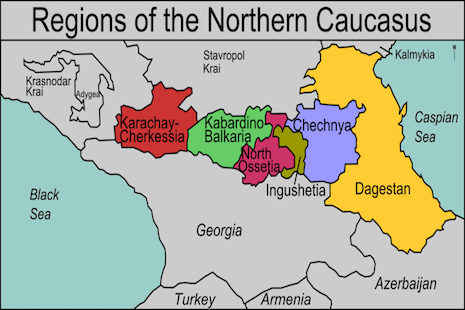Russia: hundreds arrested in anti-war protests
Moscow police arrested hundreds protesting against military intervention in Ukraine, after President Putin won approval from senators to send troops into the neighboring country.
Moscow police arrested hundreds protesting against military intervention in Ukraine, after President Putin won approval from senators to send troops into the neighboring country.
With pro-Russian gunmen occupying Crimea's parliament and Moscow threatening intervention, the Tatars have emerged as a dissident voice opposing union with Russia.
Ukraine's acting interior minister Arsen Avakhov said an arrest warrant has been issued for the country's fugitive president, Viktor Yanukovich, for the mass killings of protestors.
The Ukrainian protesters are demonized as “fascists,” exploiting far-right elements in their ranks—but there is a far greater case that the Yanukovich regime is truly “fascist.”
Iranian Nobel Peace Prize winner Shirin Ebadi spoke out against her own government and Russia for their "intervention in Syria" on the side of Bashar Assad's regime.

With the Winter Olympics underway in Sochi, Russian special forces troops have killed several suspected militants in a series of raids in Dagestan, just across the Caucasus. (Map: Wikitravel)
Circassians are calling for a boycott of the Sochi Winter Olympics, demanding that Russia's 19th-century military campaign against their people be recognized as a genocide.
The European Court for Human Rights ruled that Russia must pay $2.6 million, to the families of 36 Chechen men who disappeared between 2000 and 2006.
France agreed to exradite the ex-Kazakh energy minister to Russia on corruption charges—despite fears that he will be turned over to Kazakhstan, to face torture.
In the wake of the Volgograd terror blasts, Putin is preparing a new offensive against Chechen insurgents seeking to rebuild the 19th century "Caucasus Emirate."
In Ukraine, Thailand and Italy, riot police stood down and ceded control of urban space to protesters—yet the demonstrators in all three countries have problematic politics.
By saying the US “funds rebels that fight against presidents who don’t support capitalism or imperialism,” Evo Morales allies himself with a regime that is committing war crimes.